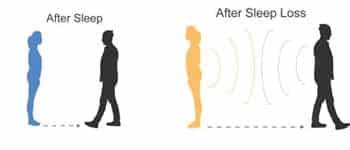To kick off Sleep Awareness Week, the National Sleep Foundation released results from its annual Sleep in America Poll, highlighting a link between sleep and depression.
The poll of approximately 1,000 adults found that those with good sleep were likely to be free of significant depressive symptoms. Over 90% of adults with “very good” sleep health reported an absence of elevated depressive symptoms.
Other key results from the research show:
- Almost seven in 10 adults (65%) who are dissatisfied with their sleep experience mild or greater levels of depressive symptoms.
- People with difficulties falling or staying asleep just two nights a week have higher levels of depressive symptoms than those without sleep difficulties.
- Half of all adults who sleep less than the National Sleep Foundation-recommended seven to nine hours per night experience mild or greater levels of depressive symptoms.
- Over 90% of adults who engage in high levels of healthy sleep behaviors have good sleep health and report no significant depressive symptoms.
“In the day-to-day execution of our sleep health mission, we give lots of simple, evidence-based, and consensus-driven tips and tools to help people get enough of the quality sleep they need. For this year’s poll, we were compelled to look again at the connection between sleep health and mental health conditions like depression,” says John Lopos, National Sleep Foundation CEO, in a press release.
For the first time, this year’s research combined various sleep health tools, including the National Sleep Foundation’s Sleep Health Index and Sleep Satisfaction Tool, as well as its Best Slept Self Questionnaire, to assess the nation’s sleep and the Patient Health Questionnaire-9 to evaluate depressive symptoms.
Sleep Awareness Week 2023 runs from Sunday, March 12, to Saturday, March 18.
Photo 101440985 © Ocusfocus | Dreamstime.com





